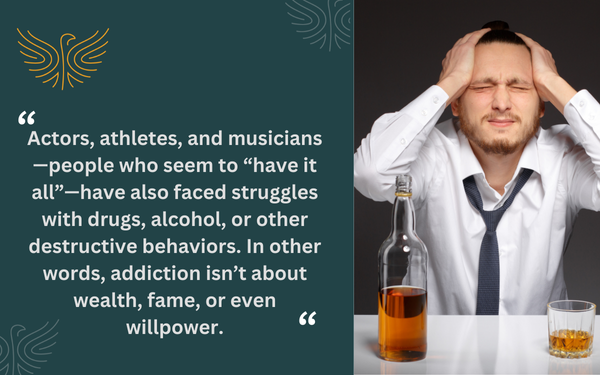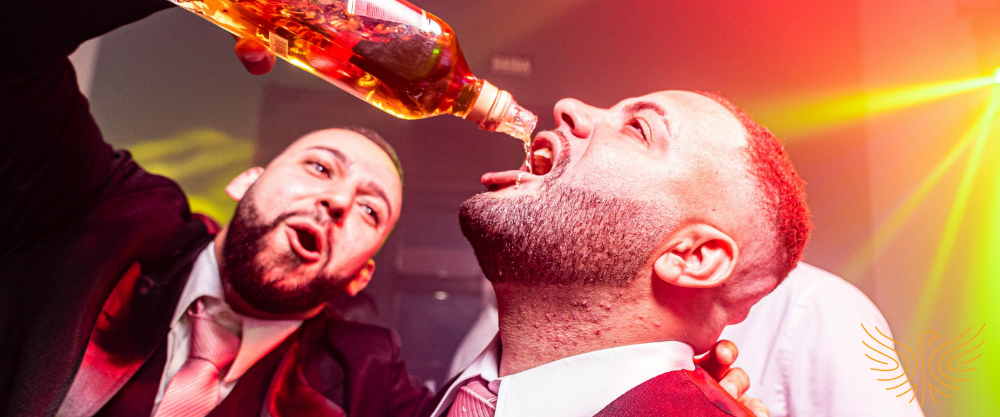When we see celebrities open up about their struggles with addiction, it can feel both surprising and strangely comforting. Stars like Robert Downey Jr., who rebuilt his career after years of substance use, or Demi Lovato, who has spoken candidly about relapse and recovery, show us that even admired figures face the same battles as anyone else.
Addiction doesn’t discriminate, and recovery is a journey that requires courage, no matter who you are. By paying attention to the stories of well-known figures in recovery, we can find lessons in honesty, resilience, and hope. So, what are a few takeaways? Here are a few notable lessons that stand out.
_______________________________________________________
1. Addiction Can Affect Anyone
It’s easy to assume that addiction only happens to people in difficult circumstances, but celebrity stories prove otherwise. Actors, athletes, and musicians—people who seem to “have it all”—have also faced struggles with drugs, alcohol, or other destructive behaviors. In other words, addiction isn’t about wealth, fame, or even willpower.

When we see a public figure being honest about their struggles, it helps break down the harmful stereotype that addiction is a sign of weakness or poor character. Instead, it reminds us that addiction is a complex health condition that can touch anyone. For people in recovery, this truth can be freeing—in many ways, it validates the experience of everyday people who are working hard on their own healing.
2. Honesty Breaks the Stigma
For many years, shame and fear of judgment kept people silent; many who struggled with addiction suffered alone. Yet, when celebrities speak openly about their recovery, it opens the door for everyone else to feel more comfortable talking about it openly, too. Their honesty strips away the stigma and shows that seeking help is nothing to be embarrassed about.
This helps normalize conversations about addiction. It encourages others to acknowledge their own struggles and take steps toward healing without the burden of secrecy or shame.
3. Recovery Is a Lifelong Journey
Recovery is often portrayed as a finish line—something you achieve once and never have to think about again. But many well-known figures have experienced setbacks or relapses, yet they chose to get back up and keep moving forward.
For example, the late Matthew Perry, best known for his role on Friends, spoke openly about his struggles with addiction. He admitted that his journey included multiple relapses, but he also emphasized that each attempt at recovery mattered. His honesty helped others see that slipping back doesn’t erase progress—it simply means the work of recovery continues.
This re-emphasizes that recovery is not about perfection, but persistence. Each day brings a new opportunity to practice healthy choices, rebuild trust, and strengthen resilience.
4. Support Systems Make All the Difference
No one recovers alone. Even the most successful celebrities rely on strong support networks to stay grounded and accountable. For some, this means leaning on family or close friends, or it may include professional treatment teams, recovery programs, or peer support groups.
In other words, getting help from others is a strength, not a weakness. Whether through therapy, group meetings, or simply reaching out to someone who understands, support systems make the path to recovery more sustainable—and far less lonely.
5. Hope and Inspiration Are Contagious
When a celebrity shares that they’re living in recovery, it demonstrates that change is possible. And these stories, in turn, inspire others. Seeing someone rebuild their life after addiction can give others the courage to believe they can do the same.
The truth is that there’s always hope. It’s never too late to get help. At Freedom Recovery Centers (FRC), we know that the first step can often be the hardest. But our team is here to support you and guide you through the process, helping you pave the way toward recovery. Our phone lines are open 24/7; when you’re ready, call us at 804-635-3746.
.svg)






.svg)

.svg)



.svg)
